Past Grantees
Eneigho Fanny Abirachoh, Shey Shanceline Cheche,
and Bekoume Wandji Kouayep Braxley
Bamenda, Cameroon
Reducing Human-Elephant Conflict Through Cassava Cultivation

The lower slopes of Mount Cameroon, home to 100-200 elephants and several small villages, are suffering from inter-species clashes. Over the years, there have been increased human-elephant conflict due to habitat fragmentation in the communities surrounding this area. According to the residents of Bakingilli village, elephants have destroyed over 250 banana, plantain, corn, and bean plantations. The elephant communities face threats from the human inhabitants of their lands, too.
With support from the Fellowship Grant Program, Fanny, Shey, and Bekoume will work with community leaders to train and provide ongoing support to local residents on cassava cultivation and processing. Through their project, they aim to promote harmony between the elephant and human communities of Mount Cameroon, and improve the livelihood of Bakingilli households by providing an additional source of income through the cultivation, processing, and marketing of cassava products.

Co-Chairs: Finn Does, Natalie Heller, Sophie Eilersen, Sophie Merickel
San Francisco-Bay Area, California, USA
Bay Area Youth Climate Summit

The Bay Area Youth Climate Summit (BAYCS) amplifies the much-needed voices of youth in the climate movement. Their annual climate summits have brought together tens of organizations and hundreds of youth for a day of climate solutions, resilience, and community. The BAYCS team, composed of 25 Bay Area youth from 15 schools, has hosted four summits and organized 70+ monthly workshops in partnership with local environmental justice organizations. Workshop topics have covered everything from coral bleaching to how housing intersects with environmental justice to air quality equity. Since BAYCS’ inception in 2020, the team has mobilized over 3,500+ youth, garnering the attention of the UN, ABC News, and more!
With support from the Fellowship Grant Program, BAYCS will continue to create free workshops integrating more interactive elements, like live music! As mentors, the Future Blue Youth Council will help brainstorm and execute ideas for their workshops, expand their social media presence, and create a plan for the longevity of the organization. Through this support, BAYCS aims to expand their reach, prompting even more Bay Area youth to take collective action in the spheres of policy, social justice, and education.
Ashlee Yin and Alejandra Arcila
Barranquilla, Atlántico, Colombia
Youth Environmental Movement

Youth Environmental Movement (YEM) is an environmental network of national and international organizations, schools, and institutions that work together to promote events and activities regarding the circular economy, conservation of biodiversity, and environmental education. Its flagship events are the Ecoshoot, an international environmental photography contest, and the Eco-Marathon, a road race that promotes recycling.
The Future Blue Youth Council is excited to work with YEM to promote its early development by supporting fundraising efforts, designing a social media communications plan, assisting in organizational networking, and strengthening student outreach to achieve organizational goals.

Zara and Ashton Hawkins
Hereford, Herefordshire, United Kingdom
Hidden Plastic

Siblings Zara and Ashton Hawkins launched Hidden Plastic in 2020 to raise awareness of the plastic pollution crisis. They create and share educational videos through Hidden Plastic’s social media platforms on YouTube, Twitter, and Instagram.
With the support of the Fellowship Grant Program, Zara and Ashton will set up a dedicated Hidden Plastic Studios, which will enable the launch of their “Did You Know?” series of short videos on plastic pollution. A youth-led news channel will follow later this year and will include interviews and creative videos about the problems of and solutions to plastic pollution. Bow Seat will help provide content for this news channel and connect Zara and Ashton to environmental youth leaders.
Maria Kameta
Juma, Kasungu, Malawi
Mudzi Cooking Project
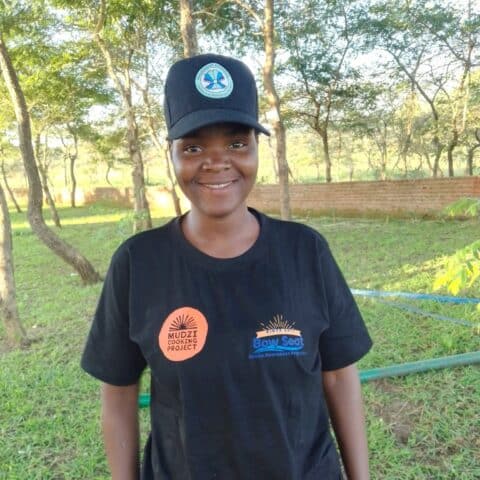
Every day, women surrounding the Chisinga Forest spend time procuring firewood to run their homes and feed their families. In search for an alternative to the exploitative practices of deforestation, Maria decided to create a new form of energy using what the villages already had in stock. Using waste paper, sawdust, agricultural waste, groundnut shells, rice husks, and maise stalks, Maria trains women and other community members in the surrounding villages to create briquettes to be used with energy-efficient cooking stoves.
In addition, Maria hosts festivals to integrate briquette-making into community culture. She also has created a cohort of climate ambassadors who visit classrooms to introduce the concept of climate change to students, who are trained to create their own stoves, become climate advocates, and join Maria in her mission to give her community the tools to make sustainable decisions. With the support of the Fellowship Grant Program, Maria will expand her efforts to more villages outside the Chisinga Forest, providing climate education to 300 households!

Grace Obiorah, Jennifer Obiorah, Chinenye Obiorah,
Denelson Obiorah, Charles Obiorah, and Victor EkemezieEnugwu Agidi, Anambra, Nigeria
TeamUpcyclers
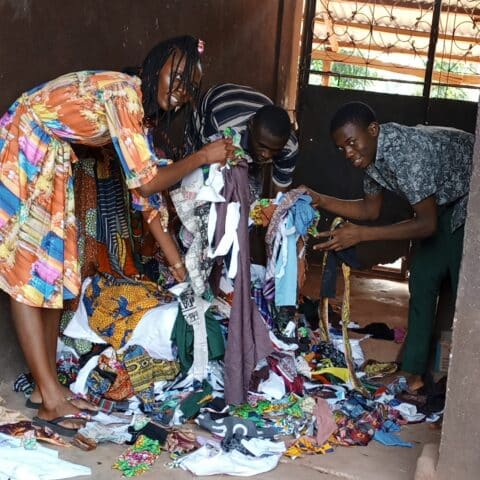
TeamUpcyclers is undertaking a project to upcycle textile waste into eco-friendly and affordable reusable sanitary pads for girls and women in rural communities in Nigeria. Grace and her siblings developed this low-cost solution to combat inadequate waste management within the textile industry and to increase menstrual health awareness and sanitary product accessibility within their community. Her team is also committed to expanding climate education in schools and teaching students how to upcycle textile waste into reusable sanitary pads.
The Future Blue Youth Council is excited to work with TeamUpcyclers to expand the reach of their project, educating more students about climate change and making sanitary pads more accessible. Grace and her team and the FBYC will be collaborating to develop a comprehensive climate curriculum and establish a professional digital presence to reach a wider audience.
Keren-happuch Garba
Zaria, Kaduna, Nigeria
Sinking a Borehole for the Wusasa Community
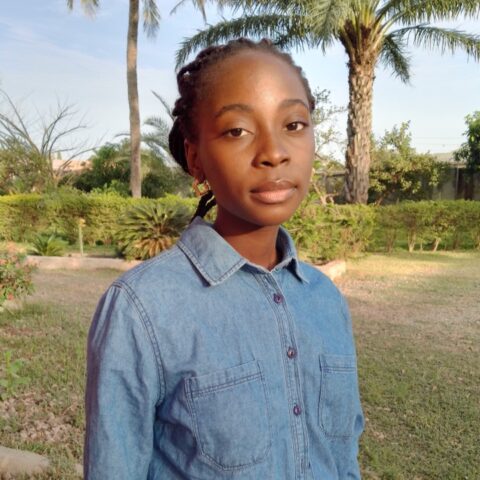
Keren-happuch is drilling a borehole to alleviate the issue of water scarcity in the Wusasa community. The community has historically struggled with obtaining water, having to draw water from wells (only accessible to households with them) or traveling miles to gain access to water due to the nature of the area’s climate.
With support from the Fellowship Grant Program, Keren-happuch will be able to construct this borehole for the Wusasa community to gain access to an important water source. In addition, the grant will support Keren-happuch’s efforts to educate the children of her community about climate change and its effects on the environment through the arts and other means. Through Keren-happuch’s work, she hopes to reduce the risk of unhygienic water, allow for a water source to remain nearby the community, and spread awareness of climate change and its affects on water scarcity.

Mackenzie Coates, Claire Smith, Grace Rice
Pontiac, Illinois, USA
The Pontiac Food Forest
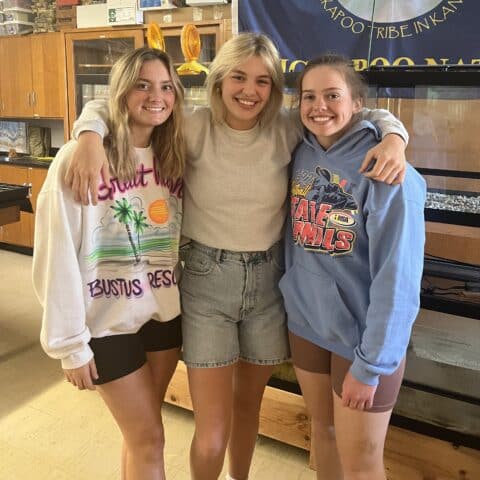
Food insecurity is a prevalent issue in Mackenzie, Claire, and Grace’s hometown. To address this problem, they acquired a deforested lot that they will turn into the Pontiac Food Forest, a community garden that helps make fresh food available to all. The trio also plan to incorporate a physical climate “classroom” in the garden, where the community can learn about topics like greenhouse gases, energy, resources, and pollinators. Through their project, Mackenzie, Claire, and Grace aim to emphasize the importance of two interconnected issues: food insecurity and climate change.
With support from the Fellowship Grant Program, the Pontiac Food Forest is able to purchase supplies, including seeds, tools, a tool shed, gardening equipment, and presentation materials. As mentors, the Future Blue Youth Council will help brainstorm and execute ideas for the climate classroom, expand the project’s social media presence, recruit for summer camp activities, and create a plan for the longevity of the project.
Bishal Panthi, Sonu Kumar Yadav, Prashant Neupane, Ram Raj Shabda Yadav
Butwal, Lumbini, Nepal
Let’s Talk About Menstruation: Normalizing Conversations About Periods in Nepal

In his quest to break cultural taboos, Bishal and his team founded Let’s Talk About Menstruation: Normalizing Conversations About Periods in Nepal (LTAM) to advocate for menstrual health. The newly created project will host local workshops that promote conversation around menstrual hygiene, involving an environmentally focused curriculum with creation and distribution of sustainable period products.
With support from the Fellowship Grant Program, LTAM will establish their organization’s first social media presence, design exciting workshop structures, and reach out to potential facilitators. The Future Blue Youth Council can’t wait to help make an impact on female health in the Nepali community!
Read more about Let’s Talk About Menstruation.

Lily & Maggie Liu
Summit, New Jersey, USA
Net Love
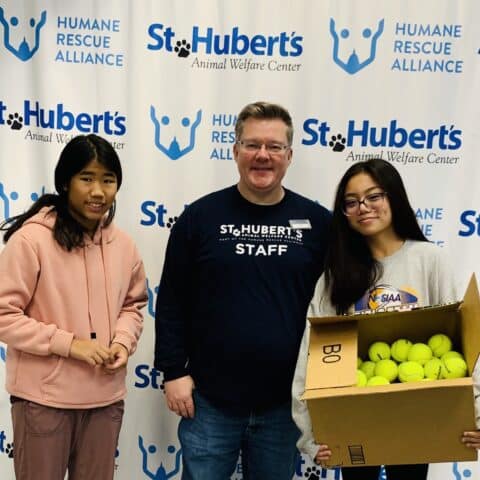
Lily and Maggie established Net Love to recycle and repurpose tennis balls, which end up in landfills every year and contribute to tons of methane-producing non-compostable waste. The Future Blue Youth Council is excited to work with Lily and Maggie to expand their recycling and repurposing efforts towards their goal of recycling 2,000,000 tennis balls.
Siddharth Jha (16)
Colombo, Sri Lanka
Save My Sea
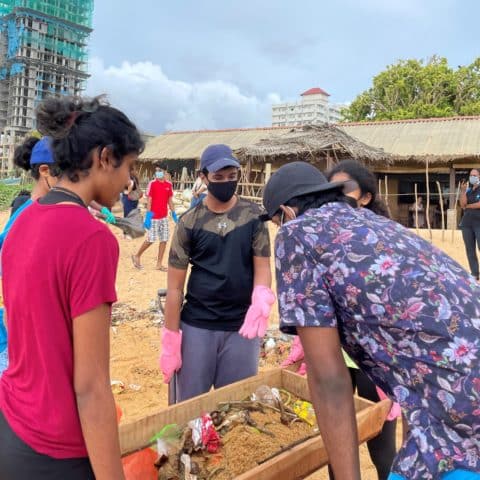
The coastline of Colombo, Sri Lanka, is suffering from one of the worst environmental disasters in the nation’s history, after a fire on the X-Press Pearl cargo ship this summer released tons of tiny plastic pellets (also called nurdles) into the ocean. These nurdles are hyper-absorbent of toxic chemicals and pose a risk to any organism that comes into contact with them. Dead fish, turtles, and other marine animals with pellets in their bellies have already washed up on shore.
In response to this disaster, Siddharth created Save My Sea to educate and engage local students who want to help protect their marine environment through public awareness campaigns and beach clean-ups. Save My Sea, which is already 35 members strong, is mentored by renowned Sri Lankan bio-conservationist Dr. Lalith Ekanayake and supported by the Marine Environment Protection Authority. Siddharth looks forward to growing Save My Sea’s reach and impact in the coming year.

Ishan Kapur (16)
New Delhi, Delhi, India
The Blue Voice
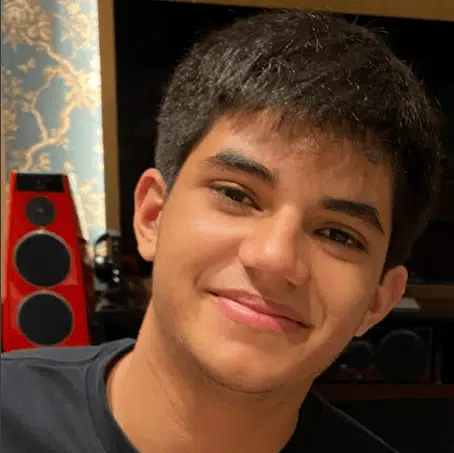
Ishan cannot remember a time when the Yamuna, a river that runs through New Delhi, was not visibly polluted by plastic waste, especially polythene bags. His project aims to reduce plastic pollution in local waterways while simultaneously aiding housing-insecure and other marginalized populations in the city. He will conduct a large-scale plastic bag collection drive through a network of volunteers, then employ disadvantaged women served by the non-governmental organization Hamari Asha to crochet the plastic bags into sleeping mats. The mats each use approximately 700 bags and are lightweight, transportable, waterproof, and do not attract lice or ticks. The mats will then be donated to the unhoused who live on the banks of the river.
Anu-Ujin Khurelbaatar (18), Tseenyam Davaasuren (16), Nomin Enkhbayar (16), and Namuun Enkhbayar (16)
Ulaanbaatar, Mongolia
Youth Movement for Earth-Friendly Citizens
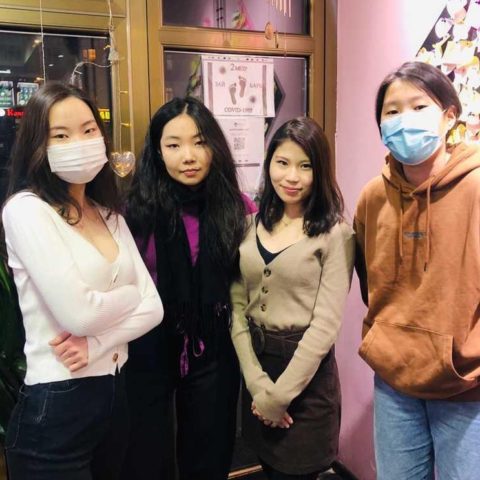
The citizens of Ulaanbaatar’s Ger district are facing two major environmental crises: first, their drinking water is contaminated with bacteria from human feces, primarily because their shared water wells are placed too close to their pit latrines (toilets). Second, incorrect usage of the pit latrines leads to soil contamination, affecting the residents’ only water source, the Tuul River.
Through a public awareness campaign, Anu-Ujin, Tseenyam, Nomin, and Namuun aim to educate residents of the Ger district about these contamination issues and how to minimize or prevent them while living sustainably. They also hope to facilitate the swap of a few households’ pit toilets for soil-friendly BioLet composting toilets, and measure the impact on their soil quality.

Elane Kim (16)
Walnut Creek, California, United States
Gaia Literary Magazine

Elane is marrying her passions for creative writing and environmental activism to produce the Gaia Literary Magazine, an online anthology of creative works dedicated to educating a wide audience about the dangers of climate change and to inspiring protection of the planet. She hopes to include contributions from people around the world who represent diverse backgrounds and experiences. Elane’s project will culminate in a virtual open mic, where a community of creatives can share their stories and leave empowered, knowing that their voices can impact the world.
Charmaine Mupara (16) and Thelma Faith Sithole (16)
Mutare, Manicaland, Zimbabwe
Marange Rainwater Harvesting Pits

Residents of the rural areas of Marange struggle with climate-induced water scarcity. Through their project, Charmaine and Thelma Faith plan to dig harvesting pits that will collect rainwater and enable it to slowly percolate into the ground, reducing erosion and run-off, and recharging underground water storages. Inside the pits, fruit trees will be planted to ensure food security for local school children. Charmaine and Thelma hope that their project helps to educate these youth about the need to preserve water, and that the students will share what they learned with their families and neighbors.

Udayan Saha (16)
Dehradun, Uttarakhand, India
Wall Murals to Raise Awareness of the Ancient Water Temples of the Himalayas
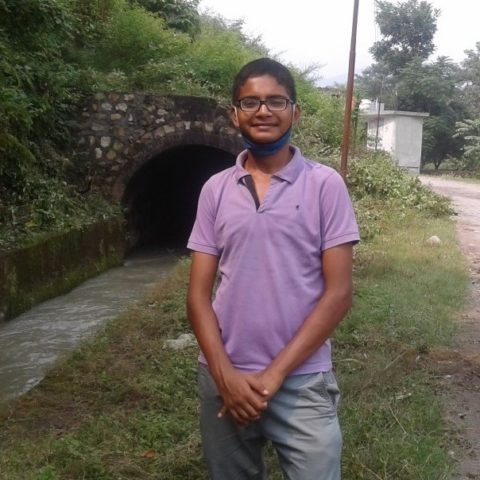
The Himalayas are largely water-scarce, as much of the rainfall flows into the rivers and ends up in the ocean. The region’s ancestors were aware of this issue and therefore created water temples, harvesting structures to tap, conserve, and judicially leverage this precious resource.
Udayan’s project focuses on an unused water temple in the mountain village of Matogi in the Dehradun district of Uttarakhand, India—a community that faces water issues regularly. Although the water temple is a good source of perennial water, due to lack of regular maintenance, it is used sparingly. By creating murals on the walls around the water temple, Udayan aims to highlight the water heritage of the Himalayas, the importance of the water cycle, and the interconnectivity among the various elements of nature. The murals will also depict the rich cultural and social activities that once revolved around the water temple before piped water supplies arrived. Udayan’s main objectives are to instill in the community a renewed pride in their water heritage, and to inspire them to take ownership of the water temple’s future upkeep.

Karina Samuel
Coral Springs, Florida, USA
Bye Bye Plastic Bags Florida

Karina founded Bye Bye Plastic Bags Florida (BBPBF) in 2018 to combat environmental concerns through beach cleanups. While the organization was initially focused on plastic waste reduction, Karina soon learned that pollution was far from the only environmental problem. BBPBF evolved into an intersectional activist group that, in addition to conducting cleanups, also concentrates on alleviating climate justice issues through lobbying events and strikes.
With support from the Fellowship Grant Program, members of BBPBF will travel to Indonesia and India, two hubs of the global BBPB movement, to organize sustainable clean-up efforts at the Kuta Beach and the Ganges River, respectively. Through participating in these international efforts, BBPBF members hope to gain global perspectives on different environmental issues and policies, create a committed network of anti-plastic youth advocates, and spur conversation and pro-environment dialogue across numerous cultures and backgrounds.
Read more about Karina’s work with Bye Bye Plastic Bags Florida.
Zuzanna Witek (15)
Bydgoszcz, Kujawsko-Pomorskie, Poland
Ocean Literacy Teacher Packages
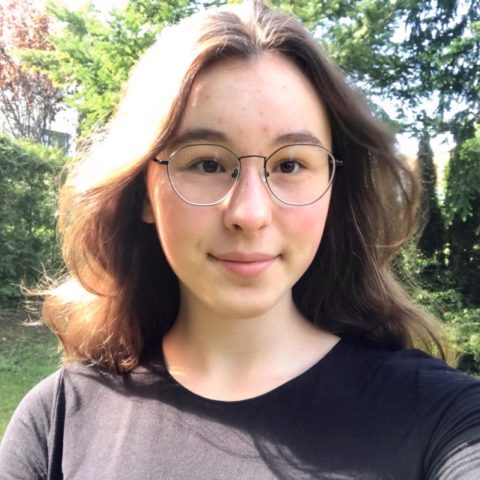
In 2019, Zuzanna created Thriving Corals, a youth-driven program in which high school students create interdisciplinary, engaging lesson plans and activities that combine science, art, and the humanities around ocean literacy principles. Recognizing that there is a lack of educational materials on ocean literacy available to Polish schools, Zuzanna and her team of interns will use Fellowship funding and support to complete Thriving Coral’s nine lesson plans, then translate them from English to Polish and Spanish. In addition, Zuzanna aims to forge formal partnerships with schools and teachers and to bring the lesson plans to many classrooms in the coming year.
